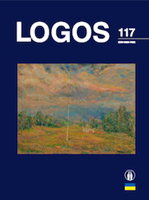Keletas pamąstymų apie valstybės mokslą ir konstitucinę sąvoką "tauta"
Some Reflections on the State Science and Constitutional Term "People"
Author(s): Jan KudrnaSubject(s): Constitutional Law, Political Philosophy, Social Philosophy, Philosophy of Law, Philosophy of Law, Sociology of Law
Published by: Visuomeninė organizacija »LOGOS«
Keywords: citizens; people; rights; public life; participation; inclusion; foreigners; aliens;
Summary/Abstract: This article is devoted to considerations of what the term "people" means within constitutional law and science of state. It is typical feature of constitutional law as a legal discipline that it does not itself define the terms it uses. Either it leaves their definition to the implementing laws, or this service is rendered to it by doctrine in the form of typically science of the state, or in some cases the necessary interpretation is provided by the decisions of the courts, typically the Constitutional Court or the Supreme Court. The term "people" is subject to doctrinal interpretation. However, even this is far from uniform. The present article demonstrates many of the paradoxes that anyone dealing with the concept of "people" will encounter. The view that the people, who are the source of power, are the citizens of the state is highly formalistic. It does not consider that many citizens of the state are completely passive and do not influence public life in any way. On the contrary, it excludes foreigners living in the territory of the state and participating in the shaping of public life. And it ignores the fact, that exercising many of the political rights granted to everyone could be more influential than using the individual right to vote. Even in the case of a formalistic interpretation based purely on citizenship, other issues need to be resolved. Are citizens who do not (yet) have the right to vote part of the people? And are citizens who permanently live abroad and who, for example, have never visited the territory of the state and do not share its fate part of the people? The author inclines to the view that foreigners who share the destiny of the state together with the citizens and participate in its maintenance should also be considered part of the people. They should be given access to the right to vote.
Journal: LOGOS - A Journal of Religion, Philosophy, Comparative Cultural Studies and Art
- Issue Year: 2023
- Issue No: 117
- Page Range: 65-74
- Page Count: 10
- Language: Lithuanian

